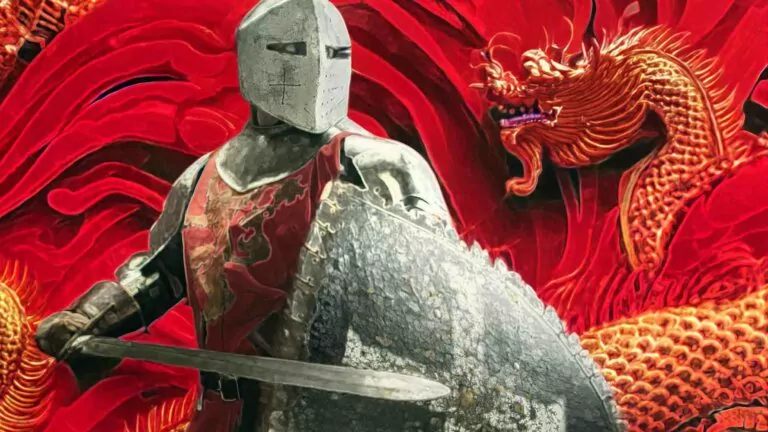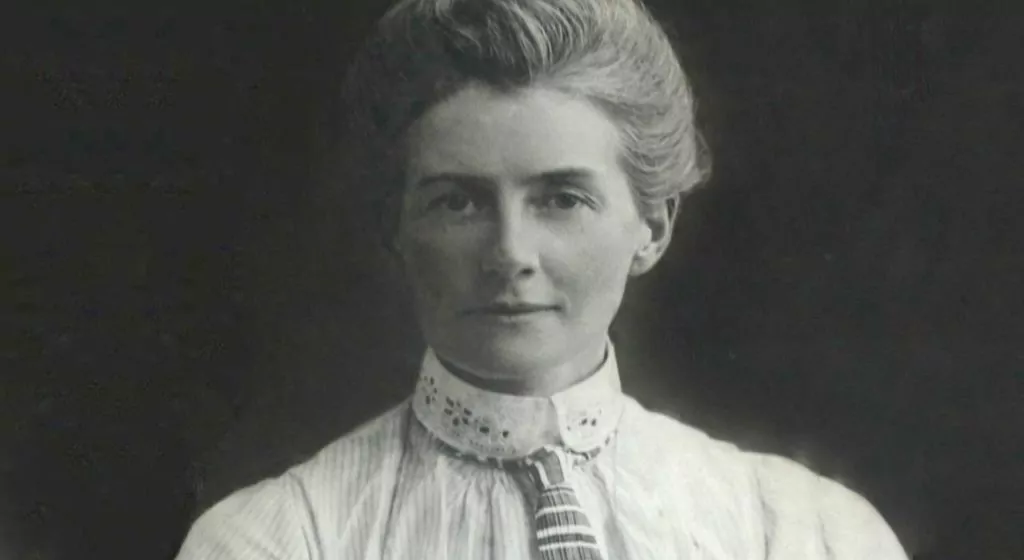Like as the armèd knight
Appointed to the field
With Thy Word will I fight
And faith shall be my shield.
Anne Askew (1521-1546)
*****
The Christian Daily International reported, at the end of December 2024, that two pastors had been murdered in Colombia. Both were shot by criminals who hated the preaching of God’s Word. The Morning Star News reported that same December, that authorities in Sudan barred Christians who’d been internally displaced by war, from conducting Christmas services. This news agency also shared that, in that same month, Hindu extremists in eastern India stripped and beat a Christian woman. Tying her to a tree, they tortured her till she lost consciousness. And the Emergency Committee to Save the Persecuted and Enslaved documented that 14 Christians were killed following a 2024 Christmas carol service in Nigeria.
As it has always been
Is there something new here? Not really! The history of Christians being persecuted for their faith, is an age-old history. Beginning with Abel, and traversing towards the ancient Roman Empire, it is a fact that martyrdom has always been present. Although more common under certain rulers than others, it has never really been absent.
During the Middle Ages, for example, and with the rise of Islam, many Christian communities were subject to discrimination, violence and death. The Catholic Church’s Inquisition took many lives and this persecution swept through the Reformation era. Putting names and faces on these remarkable saints who withstood lies about the Bible, and who testified until their last breath, is helpful and a reminder that the Church is a flesh and blood body of believers – real people who form the essence of Hebrews 11. Anne Askew, a faith-filled woman whose poem is quoted at the top of this article, was one such martyr during the Reformation.
The number of saints we will see the other side of this life, is large. As a matter of fact, we cannot even count them. John, in Rev. 7:9-10, proclaims:
“…I looked, and behold, a great multitude that no one could number, from every nation, from all tribes and peoples and languages, standing before the throne and before the Lamb, clothed in white robes, with palm branches in their hands, and crying out with a loud voice, ‘Salvation belongs to our God who sits on the throne, and to the Lamb!’”
The Boxer Rebellion
A little closer to our time period are the Chinese Christian martyrs of the early twentieth century. Specifically, the time period of November 1899 through to September of 1901, were days in which many Christians were killed. This short time span was the time of the Boxer Rebellion. Chinese nationalists, known as the Boxers, fanatically rose up during this almost two-year time period, to protest western influence in China.
At this time, many countries had spheres of influence in China, including Russia, Japan, the US, France, Britain and Germany. There were conflicts: the First Opium War, the Second Opium War, and the First Sino-Japanese War. Each war caused western powers to have more control over trade.
In China, a feeling of resentment grew against the West, and against the western missionaries. The term “boxer” was actually first used by missionaries to refer to young Chinese men who were skilled in the martial art of boxing. These young men called themselves “The Righteous and Harmonious Fists” and they were especially hostile to Christian and western influences. As a matter of fact, they dubbed Christianity the religion of the foreign devils. Wanting to preserve their own pagan religion, a black magic ritual was performed on these young men which left them foaming at the mouth and which sometimes included human sacrifice. A potion smeared on them by “priests,” was supposed to render them bulletproof.
The country’s dowager empress was persuaded to issue an imperial decree waging war on the foreign powers, which also emboldened violence against all foreigners.
In the long run, an Eight Nation Alliance – consisting of Germany, Japan, Russia, Britain, France, the United States, Italy and Austria-Hungary – fought against and defeated the Chinese Imperial Army. It has been estimated that 136 missionaries were killed during this two-year time period and that 33,000 Christians were murdered.
One of these Christians was a man by the name of Chang Shen.
A blind heart sees
Chang Shen was a man who lived in Manchuria, in north-east China during the mid to late 1800s. Although married, he treated his wife brutally, was unfaithful, and eventually drove his wife and his daughter from their home. He also gambled, and stole whenever he could, and was not liked by many in his neighborhood. When he was stricken blind in his mid-forties, his fellow villagers told him it was a judgment of the gods, because he obviously deserved to be blind.
Miserable and dissatisfied, Chang traveled hundreds of miles to a missionary hospital, because he had heard that people who went there had received their sight back. When he arrived at the entrance to the hospital, however, he was told that every bed was occupied. In God’s mercy, the hospital evangelist took him in and gave him his own bed. Chang’s eyesight was, in God’s providence, partially restored. When he heard the Gospel story for the first time in his life, the eyes of Chang’s heart were also opened and he received Christ with joy.
“May I be baptized?” he pleaded.
“Go home, and tell your neighbors the Good News of Christ,” the missionary replied, “and tell them that you have changed because of Him. I will come and visit you where you live, and if you are still following Jesus, I will baptize you then.”
When the evangelist arrived at Chang’s home about five months later, he found that there were hundreds of people who wanted to hear the Gospel. Consequently, he baptized Chang with great joy.
When Chang went to see a local native doctor to continue care for his eyes, that doctor, not being skilled, undid what the missionary hospital had been able to partially remedy. Chang became blind – and this time permanently.
Despite being sightless, the reborn man traveled from village to village, and God granted that his words did not fall upon the ground empty. Hundreds of hearts were won for the Lord. Chang praised God even when dogs were set upon him and when hateful mouths spit on him. He learned much of the New Testament by heart, and was able to cite many chapters from the Old Testament as well, and other missionaries following in his tracks were able to establish many churches.
Willing to die
When the infamous Boxer Rebellion began, Chang was spreading God’s Word in Taipinggou, Manchuria. Because local Christians were worried that Chang would be one of the first to be targeted by the Boxers, they hid him in a mountain cave. As they were doing this, a city close to Taipinggou was overrun by the militant Boxers who immediately rounded up fifty Christians.
“You are simpleminded to kill these fifty men,” a resident of the city told them, “because for every one you kill, fifty more will rise up as long as Blind Chang is alive. But if you kill him, then you will truly kill Christianity.”
“All right,” the Boxer leader replied, “take me to this Blind Chang and we will spare the fifty men here.”
There was a long silence. No one wanted to be the Judas to betray Chang. Finally, when it appeared that the Boxers would kill the fifty Christians, one man slipped away and went to see Chang in the cave where he was hidden.
Hearing the man out, Chang responded: “I’ll gladly die for these men. Please take me to the Boxers.”
When Chang arrived in the village, the Boxers had left for another village but had vowed they would return. Chang was bound by the village leaders and was taken to the temple of the god of war. Then he was commanded to worship this pagan god.
“I can only worship the One living true God,” he testified.
“Then believe in Buddha,” they insisted.
“I already believe in the one true Buddha, even Jesus Christ.”
“Then at least bow to the other gods.”
“No, I cannot do that. Turn my face toward the sun.”
Blind Chang said this because he knew that at this time of the day the sun was shining toward the temple and his back would be to the idols. Obligingly, the village leaders did turn him around, and he knelt down and worshiped God.
When the Boxers came back three days later, Blind Chang was put in an open cart and driven to the cemetery outside the city wall. As he passed through the crowds of people who lined the road, he sang.
Jesus loves me, He Who died
Heaven’s gate to open wide;
He will wash away my sin,
Let His little child come in.
Jesus loves me, He will stay,
Close beside me all the way;
If I love Him when I die,
He will take me home on high.
The blind man’s voice rose and reached not only the hearts of the people he passed, but also the throne of God’s grace.
At the cemetery, he was led to a place where he had to kneel. Three times Blind Chang cried out before he was decapitated: “Heavenly Father, receive my spirit.”
Refusing to let the Christians bury his body, the Boxers forced them to pour oil on his remains and burn them. Fearful that the blind man would rise from the dead, they were certain that he would take revenge on them. Afraid, they fled the scene of their horrific crime and left that village. In this way, the Christians in that place were spared further persecution.
Conclusion
Everyone who believes in the Lord Jesus Christ is bound to face some sort of harassment or trouble in his life. 2 Timothy 3:12 tells us that all who desire to live a godly life in Christ Jesus will be persecuted.
Charles Spurgeon said, “Christians are not so much in danger when they are persecuted as when they are admired.” A good point to ponder. Whereas admiration and prosperity cause us to forget that all we have comes from the hand of God, distress truly causes us to rely wholly on God, to grab hold of the corner of His garment, and to hide in His Word.












